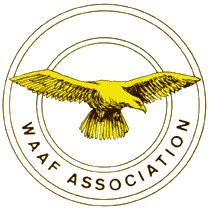
Women in the War
Gretta Loveday - WAAF High Life
![]()

 |
Women in the War Gretta Loveday - WAAF High Life
|
||
 |
|||
| |
Gretta Loveday trained as a Radio Operator in the WAAF. After training at Cranwell she was posted to Bawdsey where she met her husband Knowler Edmonds. In this written account, Knowler recalls his wife's energetic nature and her time spent climbing transmission towers at Bawdsey.
This written account was originally published in the DEHS publication Transmission Lines (Volume 5, Number 4, December 2000) The recent demolition of the last of the Bawdsey steel transmission towers reminded me of a 'confession' from my energetice wife-to-be in 1943. She had climbed one of them a year earlier. LACW Gretta Loveday had been posted to Bawdsey, after Cranwell training, in early 1942 and for a sports-fit lady was enjoying the sporting facilities in the grounds of the Manor. Her main skill was tennis where she was regarded as a powerful competitor and hard to beat (as I later found for myself). Another of her sports interests was cricket, where she enjoyed the challenge that came with wicket-keeping - and there were many enthusiastic mixed team matches on the broad expanse of the Manor ground. On inclement days Gretta could turn her interests to billiards and snooker on the famous third floor baize-covered table. A more athletic lady of her day it would be hard to find.
Bawdsey Manor and the broad expanse of Manor ground So playing hard was a compensation for the enthisiasm she gave to her share of working hard in her Watch in R-block, and sometimes in T-block, experiences of both of which had been delegated to her and coupled with promoting her to the rank of Operator/Mechanic. It was very evident that this posting in an RAF Station on the coast of Suffolk was a working challenge and environment she very much enjoyed. Gretta had experienced the repeated 1940/41 bombing raids on Liverpool which caused extensive devastation in the daylight and at night. She had severe worries about the safety of her father whose own factory was damaged from nearby explosions, and was close to the half-built Anglican Cathedral. But she now found a job in a peaceful location she could warm to using newly acquired skills in RDF. From being a worried civilian teenager she had volunteered for uniformed service in the WAAF and had been directed into learning all about Britain's defence weapon - radio location. Nevertheless, she was unprepared for some of the physical tasks that came her way. It was the period of the war when there had been growing numbers of radar operators and mechanics posted to newly set-up stations in Britain and overseas. As a consequence extra work loads were asked of the remaining personnel - among them more frequent watches (the fatigue from the three-watch system was a physical challenge most of us knew at some time in our radar service); and additional attention for female personnel to jobs, especially in T-block previously undertaken by males - radiation or not. To read more of Knowler's story about his wife - click here |